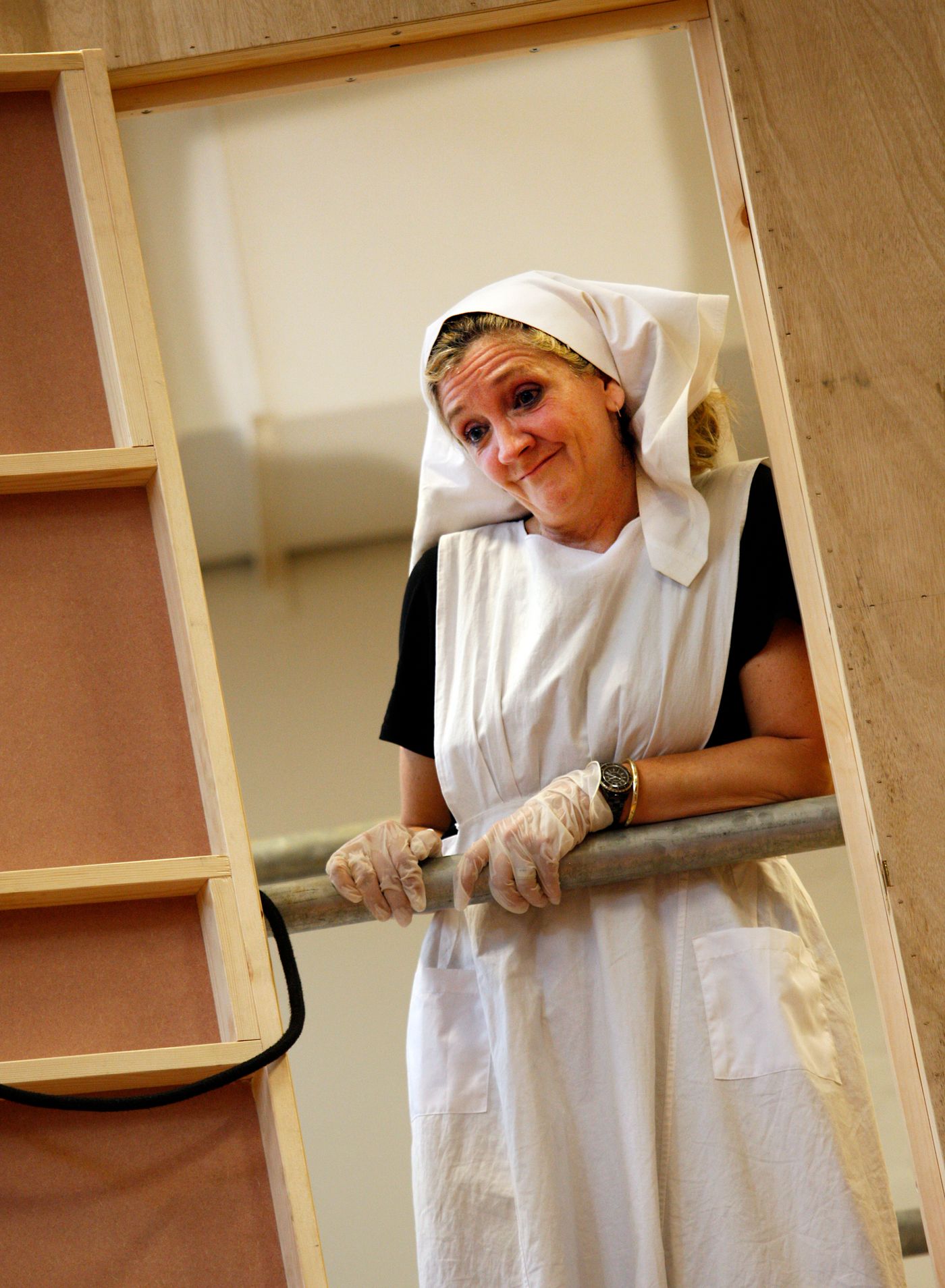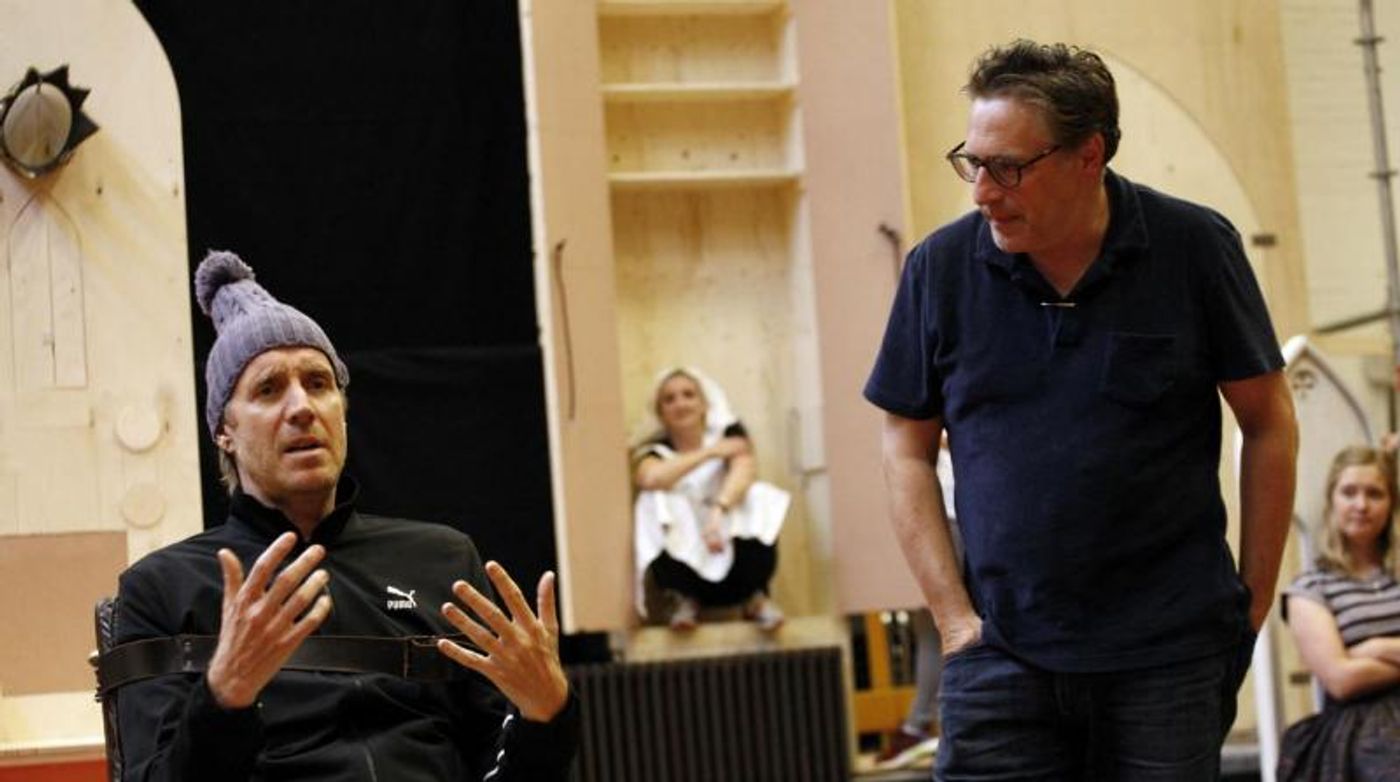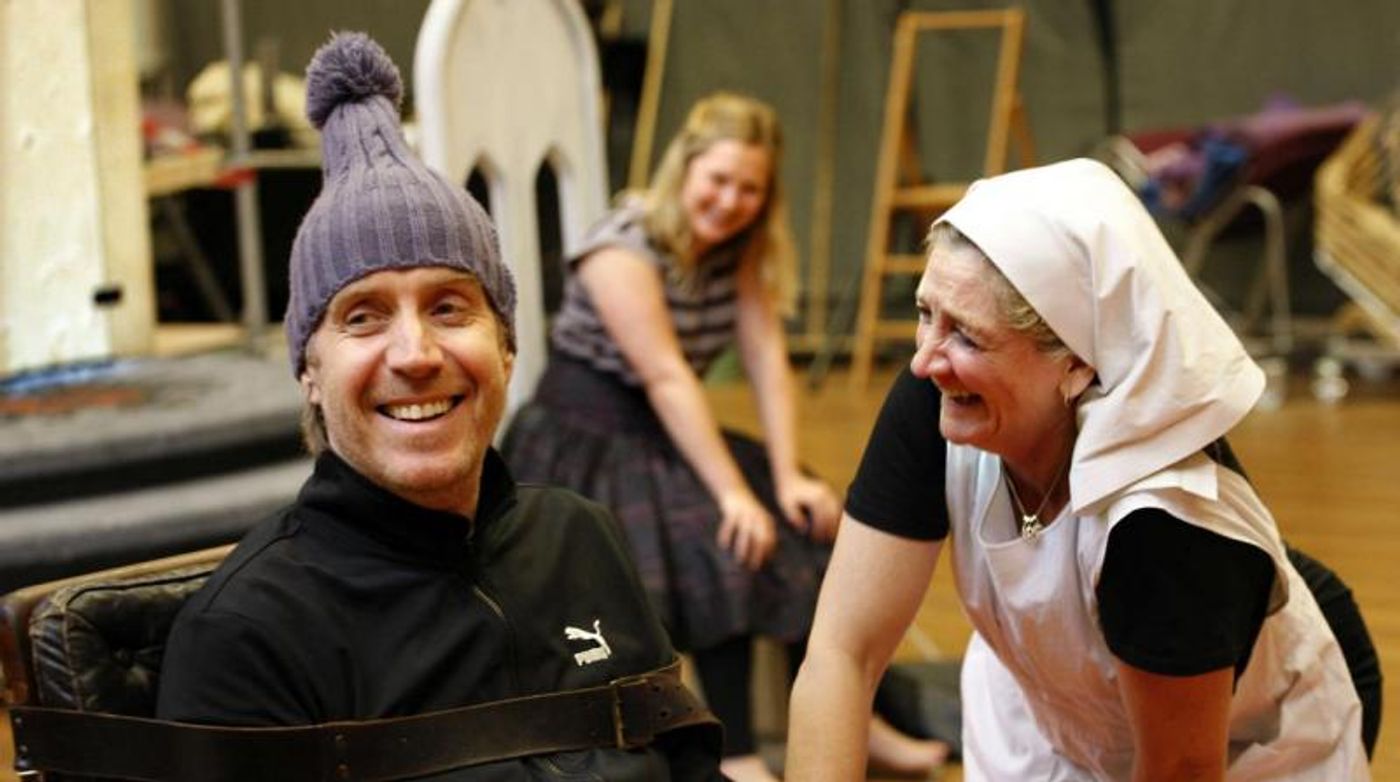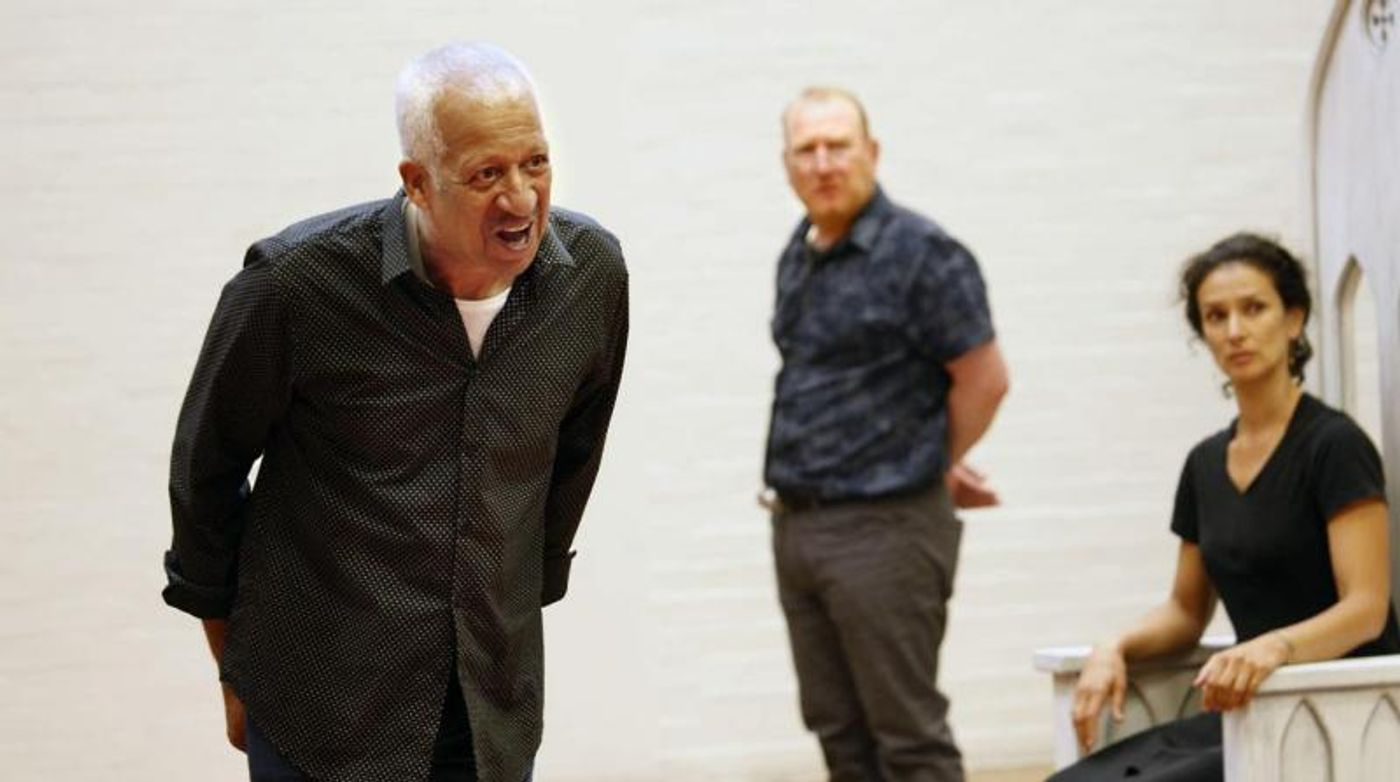Interview: Debra Gillett Talks EXIT THE KING

Exit the King marks the first time Eugène Ionesco's work has been performed at the National. Playing on the vast Olivier stage, this absurdist play features a cast of just six actors, an intimate staging.
One of those is actress Debra Gillett, making her return to the National. With the production opening tomorrow, Debra shares how rehearsals have been going so far, and looks ahead to how Exit the King will resonate with audiences and actors alike.
What is your first memory of theatre?
The first performance I saw would be Peter Pan at the Royal Opera House in Manchester. And I remember it vividly, because when Peter and Wendy set off from the bedroom window, Wendy was right behind Peter and then suddenly she wasn't. And there was an almighty thud, when she hit the floor. It was so shocking, there was a kind of gasp.
And then another Wendy appeared in the sky and the show carried on. And I remember just being outraged. But I also remember thinking, "That's showbiz..." The fact that this woman could take over, it kind of encapsulated the magic but also the show must go on-ness.
But on acting myself, I was at an all girls' school and the first play I did was The Owl and the Pussycat Went to Sea. And I just loved the feeling of interpreting this poem and the society of it. I got that straight away.
And what was your first professional stage role?
I went to drama school at Guildhall. And Conleth Hill was in the year below me, and he was great friends with this actress called Michelle Fairley, and she was friends with Pip Broughton who ran Paines Plough.
And she said, "Look, Pip is doing this play and she's looking for a girl who can play 16 and she's from Manchester" (which is where I'm from). So Michelle said I should go and meet her. And I auditioned for Thatcher's Women and I got my equity card (which was a big thing back then), my first professional job, and my first tour from that.
I remember it really clearly. It felt like this is absolutely what being an actor is. Building the set, putting a show on, taking the set down, loading it in the van, driving onto the next place. It was really, really exciting.
And so I missed finishing drama school, because once I started I didn't come back. But it was such an amazing experience, and it was all through Conleth! So whenever I see him I go, "Do you remember that night in the pub, over a gin and tonic with Michelle?"
And now you're at the National! Are you excited to be back again?

in Exit the King
Of course! I love the South Bank and this area in general. I've worked here a number of times: Three Days in the Country, Small Family Business. But the first play I did here was What the Butler Saw, which was fantastic.
And while I was working on that, a girlfriend of mine knew Patrick Marber. And she said, "He's workshopping a play, and I've suggested he contact you". And I met him and I workshopped a version of Closer. And after that he asked me to do Blue Remembered Hills.
So back then, I played an eight year old; now, I'm playing a 400 year old! And that's how our relationship has developed on stage...slightly worryingly!
What's it like teaming up with him again?
It's been lovely working with him again. You get to see each other more. And also it's really wonderful watching him work, it's really thrilling seeing your partner in their milieu doing what they do. Because you just know each other from taking the rubbish out or something!
With Exit the King, all the cast know each other really well and we all know Patrick very well. So there's a history between all of us.
Can you tell us a bit about Exit the King and the role you play?
So as the title suggests, the King is supposed to give up his reign. It's time he died, and everybody knows that that is what is meant to happen on this day. But because he's fighting this, the last few days the whole kingdom has been falling apart.
And I play the Nurse who's 400 years old and she's been with this King all of his life. I think at one time, the Nurse was just the Nurse and was part of a big staff. Now there's nobody. So she's the gardener and she's milking the cow and she's the lady in waiting and everything.
I mean, she is a woman at her wits' end. And that is her thing: she's just trying to help as best she can, but she's just pushed to the limit.

in Exit the King
What themes are being brought out in the play, for you approaching the text?
I do think it's a really beautiful play, but...well, I'll be interested to see what you think because you're so much younger than me!
Because I think it's a play that hits you in different ways, depending on the age you're at. It's Eugène Ionesco writing about death and loss and grief and all of those things. So the age we're at, it feels like it's about older parents and losing people and death, really.
I feel like there's something sort of zeitgeist-y about the work that Patrick does, that he's informed by his experience. And there's something about this that is dealing with stuff that in a way which artists do, I suppose. That's how they work things through.
What can we expect from the world on stage?
It is very stripped back, right back to that language. There's something about just trimming it all away to just people doing what they do, it's kind of thrilling isn't it? Because we've got into all these amazing designs and projections and all the other stuff, but actually just people speaking is beautiful.
And I think you'll sit and you'll feel a little bit uncomfortable. You either spend the whole time trying to find the naturalistic way through or just let it go, "Okay, let's see". And it's frightening for us too, because it is just six people on the Olivier stage.
That is an incredibly small cast for that incredibly large stage!
Yes! It's just six of us and a musician.
It's such an intensive world that this number of people create that, in a way, the fact that we do all know each other is sort of a short hand. The play deals with such a dark subject, but it's kind of incredible to have this group of people with such funny bones really. I think that helps dealing with the material. This is what is great actually about Exit the King, and Patrick did say that to us last week in rehearsal.
"There's something wonderful about a company with the same amount of sexes, there's just a different atmosphere." I live in a house of men, because I've got three boys. So I love having women around! And the women are equally as important as the men in the telling of this story and that's really rare. Equal representation is great in Exit the King.
So as well as gender equality on stage, how else do you think the show will resonate with audiences today?

and Indira Varma in Exit the King
Well there are certainly things you suddenly hear and go, "Wow". That role of the King definitely is a tyrant and he's not listening to anybody else. It's his fiefdom and we certainly know what that feels like.
It's King Lear meets Donald Trump.
And when we started rehearsals, Patrick had to go back to New York because he was nominated for a Tony for Travesties. And he sent this picture that had been on one of the American magazines, which was Donald Trump looking at a reflection of himself dressed as a King. And he said, "Can you believe the timing?" So yes, it's there. It's not that emphatic, but it's there implicitly.
Exit the King at National Theatre, until 6 October
Photo credit: Simon Annand
Videos

